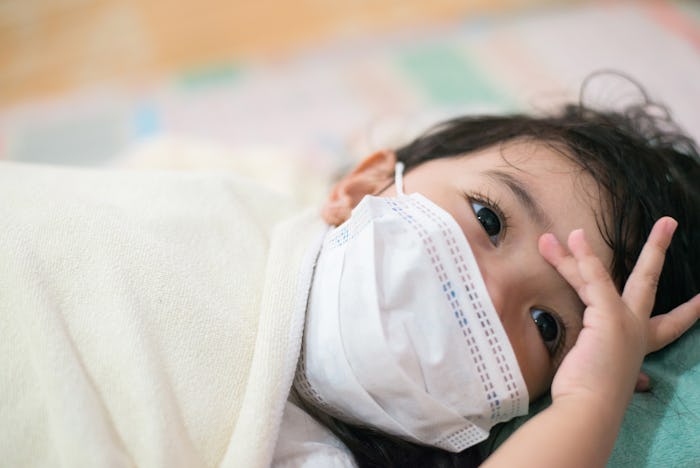News

When? How Much? There Are Still A Lot Of Questions About A Coronavirus Vaccine
As COVID-19, the virus commonly referred to as coronavirus, continues to spread and concerns surrounding it grow, so do questions about whether there will be a coronavirus vaccine. While the U.S. Department of Health and Human Services (HHS) announced earlier this month that researchers are currently working on developing a coronavirus vaccine, it could take at least a year until it reaches the market.
This week, Moderna, a Massachusetts-based biotechnology company, shipped an experimental coronavirus vaccine to government researchers in the United States, but it still has to go through a human trial period. According to CNBC, human trials are expected to begin in six weeks. If successful, CNN reported that the vaccine will then have to go through rigorous testing and regulatory approvals before it's readily available to treat COVID-19, a viral infection that can cause flu-like symptoms, potentially severe respiratory illness, and can possibly be fatal.
Dr. Anthony Fauci, director of the National Institute of Allergy and Infectious Diseases, said during an appearance on CNN's New Day on Wednesday that the vaccine could take up to a year before it's available to use. "The confusion is, we're close to starting a phase one trial to determine safety. We're going to do that in about one-and-a-half to two months," he said. "But that doesn't mean you have a vaccine. In order to get a vaccine that's practically deployable, it's going to be at least a year to a year-and-a-half at best."
And if the vaccine does reach the market, it could be costly. While speaking in front of Congress this week, HHS secretary Alex Azar could not confirm that the vaccine would be affordable. "We would want to ensure that we work to make it affordable, but we can't control that price, because we need the private sector to invest," he said. "Price controls won't get us there."
During a press conferences on Thursday, however, Speaker of the House Nancy Pelosi attempted calm worries that the vaccine would be unaffordable. "This would be a vaccine that is developed with taxpayer dollars to prevent and we think that should be available to everyone — not dependent on 'Big Pharma'," she said.
Earlier this week, President Donald Trump requested $2.5 billion in funding from Congress towards efforts to fight the virus, $1.2 billion of which will be put toward development of a vaccine, Fox News reported. In a press conference on Wednesday, Feb. 26, Trump said a vaccine will be on its way, though he did not give a specific date of availability. "The vaccine is coming along well, and in speaking to doctors," he said, "we think this is something that could develop fairly rapidly."
Currently, there is no vaccine available to treat or prevent COVID-19, according to the World Health Organization. Researchers from Australia, China, and several European countries have also been working to develop vaccines, according to U.S. News & World Report.
As of Wednesday, there have been 14 confirmed cases of COVID-19 in the United States, 12 of which have been travel related, according to the U.S. Centers for Disease Control and Prevention (CDC). There have been more than 81,000 confirmed cases worldwide, resulting in at least 2,764 deaths, CNBC reported.
Until a vaccine becomes available, health officials say the most effective way protect yourself and others from COVID-19 is by frequently washing your hands and avoiding the spread of germs. Additionally, the CDC's Dr. Nancy Messonnier urged people to stay informed and be prepared.
"I had a conversation with my family over breakfast this morning and I told my children that while I didn’t think that they were at risk right now, we as a family need to be preparing for significant disruption of our lives," Messonnier said during a press briefing Tuesday. "You should ask your children’s school about their plans for school dismissals or school closures. If ask if there are plans for teleschool. ... I continue to hope that in the end, we'll look back and feel like we were over prepared. But that is a better place to be in than being underprepared."
If you think you’re showing symptoms of coronavirus, which include fever, shortness of breath, and cough, call your doctor before going to get tested. If you’re anxious about the virus’s spread in your community, visit the CDC for up-to-date information and resources, or seek out mental health support. You can find all of Romper’s parents + coronavirus coverage here, and Bustle’s constantly updated, general “what to know about coronavirus” here.